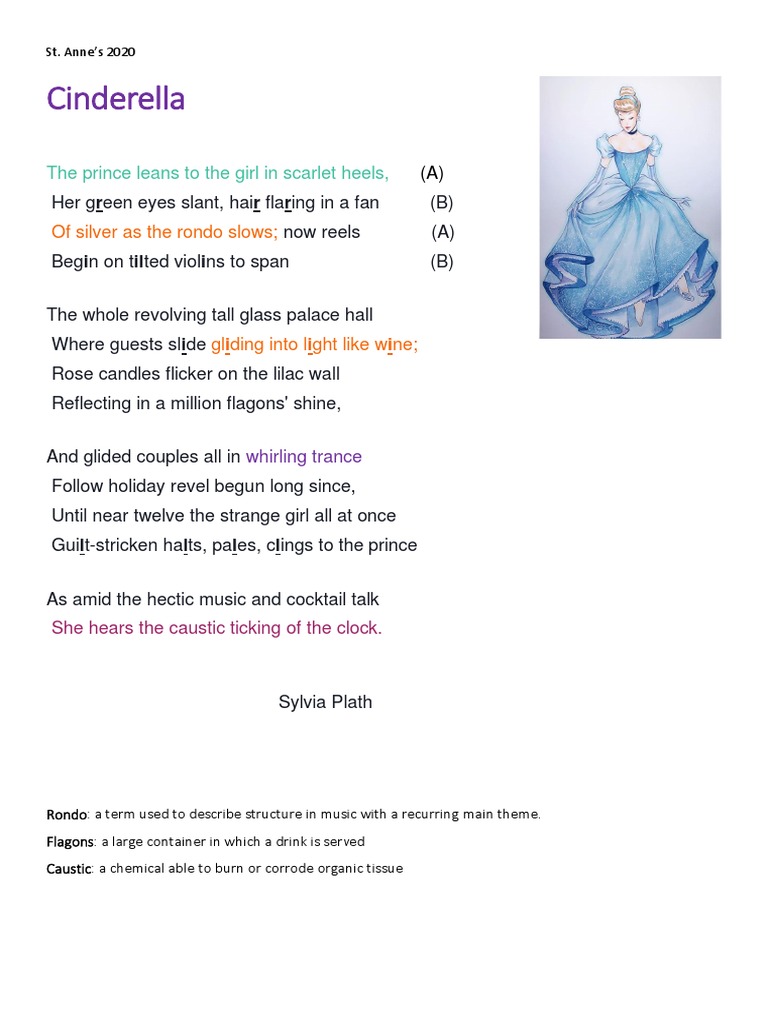In the realm of Bahá’í teachings, poetry assumes a paramount role, often deemed as the “Cinderella of the arts.” This metaphor not only underscores poetry’s understated significance but also hints at its transformative potential. Within this context, the art of poetry serves as a vessel for spiritual expression, elevating the human experience and inviting a profound shift in perspective.
To comprehend the special place poetry occupies within the Bahá’í Faith, one must first recognize the intrinsic connection between art and spirituality. Bahá’u’lláh, the founder of the Bahá’í Faith, asserts that genuine art must be steeped in truth. In this light, poetry transcends mere words; it becomes a medium through which the divine can communicate. The lyrical quality of poetry holds the power to illuminate heart and mind alike, acting as a bridge between the material and the spiritual realms.
At the heart of the Bahá’í perspective on poetry is the belief that it is fundamentally a means of seeking and expressing truth. The act of poetic creation is not simply an artistic endeavor; it is a spiritual pursuit. It invites the poet and the reader to engage in a quest for deeper understanding. This journey encourages introspection, stimulating a reevaluation of one’s thoughts, emotions, and experiences. Furthermore, it cultivates curiosity, prompting individuals to explore the abyss of their innermost selves and the cosmos beyond.
Poetry in the Bahá’í tradition serves several essential purposes. Firstly, it acts as an educational tool, imparting moral lessons through captivating narratives and vivid metaphors. The didactic quality of poems allows for the transmission of ethical values and universal principles that resonate across diverse cultures and times. Consider the arrangements of words—a delicate dance that invites reflection and form the basis of a profound interaction. As readers savor the rhythms and rhymes, they find themselves beckoned towards moral betterment.
Moreover, poetry fosters communal bonds among practitioners of the Bahá’í Faith. The shared experience of poetry recitations often leads to a collective awakening, dissolving barriers and facilitating dialogue rooted in empathy and understanding. The unity emphasized within Bahá’í teachings finds expression in poetic gatherings, where individuals engage with each other, igniting a shared enthusiasm for the beautiful and the transcendent. In this respect, poetry is not merely an isolated indulgence; it is inherently communal, drawing individuals closer to one another and to the divine.
Another significant aspect of poetry is its capacity to articulate the inexpressible. The quest for meaning often invokes a profound sense of longing—an innate yearning to grasp the ineffable. In this regard, poets become spiritual alchemists, crafting verses that resonate with deep emotional truths. They explore themes such as love, sacrifice, and transformation, facilitating a dialogue with the soul. This dialectic not only sheds light on personal struggles but also contributes to a broader understanding of the human experience.
Furthermore, Bahá’í poetry often encapsulates a vision of the future, one imbued with hope and possibility. It serves as a catalyst for change, inspiring individuals to envision a world marked by unity, peace, and justice. This forward-looking perspective piques curiosity, compelling readers to consider their role in this grand narrative of humanity’s unfolding destiny. As they engage with these verses, they are encouraged to participate actively in the creation of a better world, further solidifying the connection between poetry and social action.
The diversity present in Bahá’í poetry is also noteworthy. The tradition encompasses a multitude of voices, styles, and forms. From the profound verses of Bahá’u’lláh himself to contemporary poets within the Faith, the richness of expression reflects the vibrancy of human experience. Through experimenting with varied poetic structures—sonnets, free verse, and even prose poetry—Bahá’í poets encapsulate the diverse reality of the human condition. This plurality not only enriches the artistic landscape but also fosters inclusivity, inviting diverse perspectives into the fold.
Lastly, the transcendent nature of poetic language evokes a sense of wonder. The use of powerful imagery, symbolism, and allusion in poetry evokes visceral emotions and encourages readers to delve deeper into the significance of the verses. Through complex layers of meaning, poetry serves not merely to entertain, but to elevate the human spirit. It inspires awe and reverence, nudging readers towards a profound encounter with the divine.
In summary, poetry stands as a cherished art form within Bahá’í teachings, a true “Cinderella” that invites a transformative journey of the soul. Its multifaceted roles—from education to communal bonding, from personal reflection to visionary aspirations—underscore its critical function in fostering both individual and collective growth. The poetic realm offers a sanctuary for the curious, inviting all who engage with it to explore the depths of their own consciousness and the vastness of existence. Ultimately, Bahá’í poetry beckons us to unearth the divine within, catalyzing a myriad of perspectives that transcend the ordinary, unveiling the extraordinary tapestry of life itself.
